Research Methods at the Intersection of VIS and AH
Varied and multifaceted research methods are a defining characteristic of visualization (SIG VIS), arts, and humanities (SIG AH) research. This joint webinar will explore the inclusive intersection of both areas through the lens of research methods. The presenters will offer brief overviews of their research methods and why they are important for generating findings, meaning, and new insights.
All information researchers are invited to join and learn more about how VIS and AH research methods matter to the information fields more broadly.
Presenters
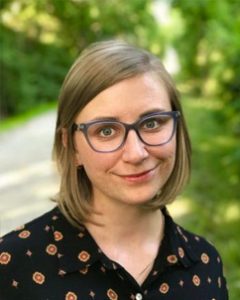 Dr. Katrina Fenlon is an assistant professor in the College of Information Studies at the University of Maryland, College Park. She served as founding director of the Center for Archival Futures, and is an affiliate of the Maryland Institute for Technology in the Humanities. Her research focuses on digital modes of knowledge production, maintenance, and preservation. She studies how information practices among researchers across disciplines are changing, and what those changes mean for the infrastructures that serve knowledge and communities within and beyond the academy. She earned her Ph.D. ('17) and MLIS ('09) from the University of Illinois at Urbana-Champaign
Dr. Katrina Fenlon is an assistant professor in the College of Information Studies at the University of Maryland, College Park. She served as founding director of the Center for Archival Futures, and is an affiliate of the Maryland Institute for Technology in the Humanities. Her research focuses on digital modes of knowledge production, maintenance, and preservation. She studies how information practices among researchers across disciplines are changing, and what those changes mean for the infrastructures that serve knowledge and communities within and beyond the academy. She earned her Ph.D. ('17) and MLIS ('09) from the University of Illinois at Urbana-Champaign
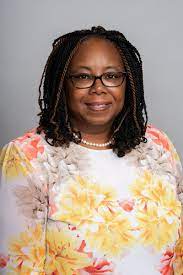
Dr. LaVerne Gray is an Assistant Professor at the Syracuse University School of Information Studies. Her research focuses on the Black information experience which comprises familial genealogies, community-based information networks, collectivism. Dr. Gray is a recipient of an early career research grant through Institute of Museum and Library Services (IMLS) Uncovering Black Lives Project, studying Black genealogists, information communities and collectives. Her scholarship has appeared in Library Quarterly, Libraries: Culture, History and Society, Journal for Education of Library and Information Studies, and the International Journal of Information, Diversity, and Inclusion.
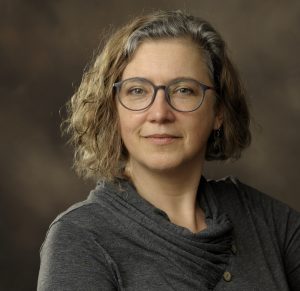 Dr. Kate McDowell focuses on storytelling as information research, social justice storytelling, and how the history of library storytelling can enhance contemporary data storytelling. Her writing appears in Library Quarterly, College and Research Libraries, and JASIST, where her article Storytelling wisdom: Story, information, and DIKW theorizes storytelling as a fundamental information form. She leads the nationally-funded Data Storytelling Toolkit for Librarians project to equip libraries with narrative tools for data-informed advocacy. McDowell is an associate professor at the School of Information Sciences at the University of Illinois Urbana-Champaign (USA), where her storytelling teaching was internationally celebrated with the ASIS&T Outstanding Information Science Teacher Award in 2022.
Dr. Kate McDowell focuses on storytelling as information research, social justice storytelling, and how the history of library storytelling can enhance contemporary data storytelling. Her writing appears in Library Quarterly, College and Research Libraries, and JASIST, where her article Storytelling wisdom: Story, information, and DIKW theorizes storytelling as a fundamental information form. She leads the nationally-funded Data Storytelling Toolkit for Librarians project to equip libraries with narrative tools for data-informed advocacy. McDowell is an associate professor at the School of Information Sciences at the University of Illinois Urbana-Champaign (USA), where her storytelling teaching was internationally celebrated with the ASIS&T Outstanding Information Science Teacher Award in 2022.
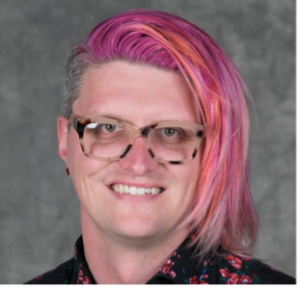
Dr. Travis L. Wagner is an assistant professor in the School of Information Sciences at the University of Illinois Urbana-Champaign. Wagner's research interests include critical information studies, queer archives, and LGBTQIA+ advocacy in sociotechnical systems. Their work investigates how LGBTQIA+ communities create identity in opposition to sociotechnical systems that characterize and limit those identities. Multiple projects within the classroom and with community organizations have led to Wagner exploring and publishing the unique relationships between obsolete archival mediums and queer counter-historical work across archival contexts. Their recent publications include articles in the Journal of Information Science, Journal of Documentation and Artifact & Apparatus. Wagner earned their PhD in information science from the University of South Carolina (USC). Travis was also a postdoctoral research fellow at the Center for Archival Futures (CAFe) and the Recovery and Reuse of Archival Data Lab (RRAD) within the University of Maryland’s College of Information Studies.
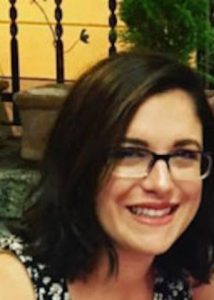
Morgan Wofford is a doctoral candidate at the School of Information at the University of Michigan. She is a past fellow for the Earth Science Information Partners (ESIP) Community Resilience and Open Science Cluster. Her research focuses on how open data are used in diverse communities and how to create equitable and culturally meaningful access to data. She looks to understand how communities evaluate and reuse socio-environmental data from open data repositories in hopes of learning how to release and contextualize science data for public consumption. She earned her MLIS (‘18) from the University of California, Los Angeles.
Can't join a webinar at its scheduled time? Don't worry!
All webinar registrants will receive a link to the webinar recording after the event. All ASIS&T webinar recordings are also available for on-demand viewing from the Past Webinar Library on iConnect, the online community for ASIS&T members. If you need help accessing iConnect, contact Pamela Yonker at pyonker@asist.org.
